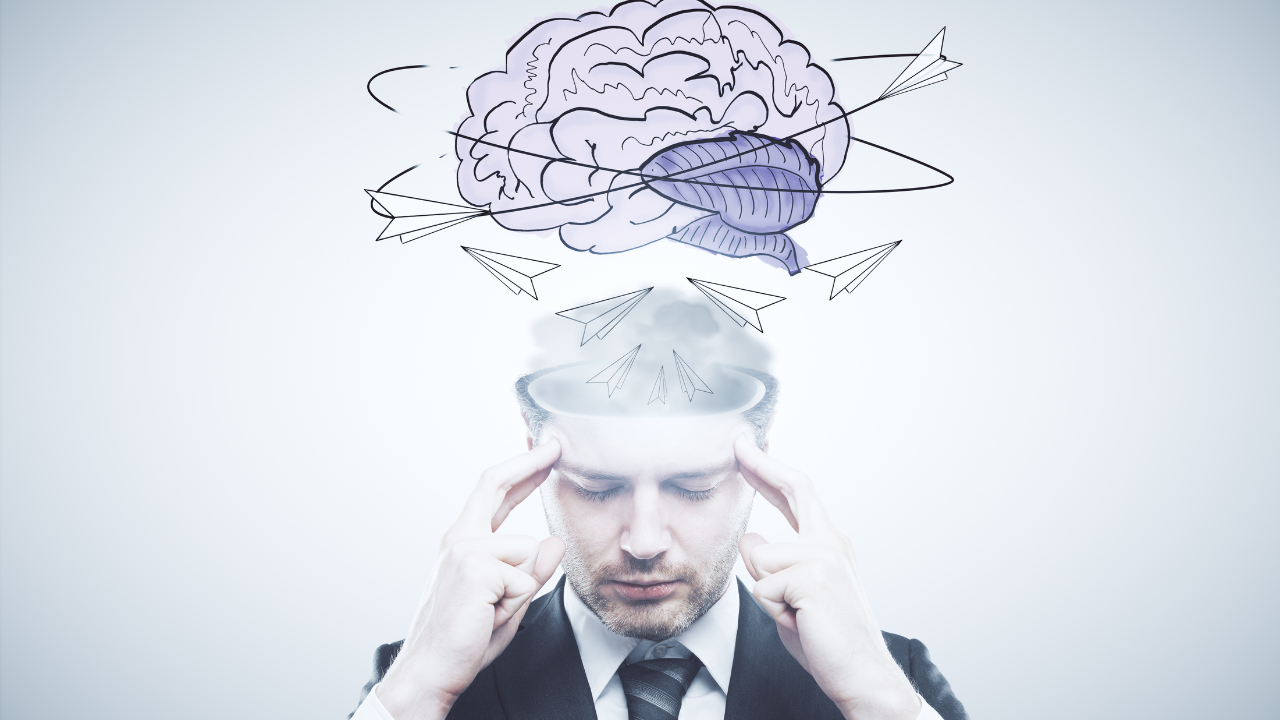Is Brain Fog Hitting Younger Generations? 7 Reasons It Demands Our Attention!

Published: 2025-09-18 06:31:00 | Category: Uncategorized
Brain fog is a term often used to describe a collection of cognitive disturbances such as poor concentration, memory lapses, mental fatigue, and difficulty in thinking clearly. While this issue used to be associated mainly with older adults, it is increasingly affecting young people, especially those in their late 20s and early 30s. The rise in awareness around brain fog highlights the need to examine the various underlying factors contributing to this phenomenon.
Last updated: 24 October 2023 (BST)
- Brain fog affects concentration, memory, and mental clarity.
- Constant screen exposure can lead to sensory overload.
- COVID-19 has introduced lingering cognitive issues in young adults.
- Anxiety and depression can exacerbate brain fog symptoms.
- Hormonal fluctuations, particularly in women, affect cognitive function.
- Poor sleep hygiene impacts memory consolidation and toxin clearance.
Understanding Brain Fog: A Modern Concern
Brain fog is not a medically recognised condition but rather a symptom of various underlying issues. Many young adults report experiencing brain fog due to a combination of lifestyle factors and mental health challenges. The increasing prevalence of this phenomenon warrants serious attention as it can significantly impact daily functioning and overall quality of life.
1. The Role of Screen Time
One of the most significant contributors to brain fog in young people is the constant exposure to screens, particularly during odd hours. Devices such as smartphones, laptops, and televisions emit blue light, which can interfere with circadian rhythms and sleep patterns. This exposure can lead to:
- Scattered attention spans
- Reduced ability to focus for extended periods
- Sensory overload from multitasking
Scrolling through social media, switching between applications, and the demands of modern digital life can confuse the brain about where to focus, leading to cognitive fatigue and brain fog.
2. The Impact of COVID-19
The COVID-19 pandemic has introduced a new dimension to the understanding of brain fog. Many young individuals who have recovered from even mild cases of the virus report lingering cognitive issues long after their physical symptoms have subsided. This condition, often referred to as "Long COVID," raises concerns about its neurological health impacts. Ongoing research aims to uncover the long-term consequences of COVID-19 on brain function, including:
- Persistent memory issues
- Difficulty concentrating
- Increased mental fatigue
3. Mental Health Challenges: Anxiety and Depression
Anxiety and depression are prevalent among young adults and can significantly contribute to brain fog. These conditions are often associated with:
- Forgetfulness
- Lack of motivation
- Difficulty focusing on tasks
Brain fog may serve as an early warning sign of mental distress, yet it is frequently dismissed as mere tiredness or stress. Addressing mental health issues is crucial for alleviating cognitive disturbances.
4. Hormonal Fluctuations
Hormonal fluctuations, particularly among women, can also influence cognitive function. Conditions such as premenstrual syndrome (PMS), polycystic ovary syndrome (PCOS), and thyroid disorders can lead to brain fog. Birth control methods and menstrual cycles may further contribute to these fluctuations, affecting cognitive clarity. Unfortunately, these connections are often overlooked during medical consultations, leading to a lack of appropriate treatment and support.
5. The Importance of Sleep Quality
Another critical factor affecting brain fog is the quality of sleep. Many young adults exhibit poor sleep hygiene, characterised by erratic sleep patterns and inadequate rest. Sleep is essential for:
- Consolidating memories
- Clearing toxins from the brain
- Maintaining optimal cognitive function
Without sufficient quality sleep, cognitive functions naturally suffer, exacerbating symptoms of brain fog.
Other Contributing Factors
Aside from the primary causes discussed, several other factors may contribute to brain fog in young adults:
- Dietary Choices: Poor nutrition can lead to deficiencies in essential vitamins and minerals, impacting cognitive function. Diets high in sugar and processed foods can also contribute to brain fog.
- Dehydration: Inadequate fluid intake can lead to cognitive impairment, including difficulties in concentration and memory.
- Stress and Lifestyle Factors: High-stress levels from work, relationships, or lifestyle choices can lead to cognitive fatigue and brain fog.
Recognising and Addressing Brain Fog
Understanding the various factors that contribute to brain fog is essential for addressing the issue effectively. Here are some strategies that may help alleviate symptoms:
- Reduce Screen Time: Limit exposure to screens, especially before bedtime, to improve sleep quality and cognitive focus.
- Prioritise Mental Health: Seek professional help if experiencing anxiety or depression, as addressing these conditions may reduce brain fog symptoms.
- Maintain a Balanced Diet: Incorporate nutrient-rich foods that support brain health, such as fruits, vegetables, whole grains, and healthy fats.
- Stay Hydrated: Ensure adequate fluid intake throughout the day to support cognitive function.
- Practice Good Sleep Hygiene: Establish a consistent sleep routine and create a comfortable sleep environment to improve sleep quality.
Conclusion
Brain fog is a complex issue that affects a growing number of young people today. Its roots can be traced to a myriad of factors, including lifestyle choices, mental health, and hormonal changes. By recognising and addressing these underlying causes, individuals can work towards alleviating symptoms and improving their cognitive clarity. As awareness of brain fog continues to grow, it becomes increasingly important to take this phenomenon seriously and explore effective coping strategies.
How do you manage symptoms of brain fog in your daily life? #BrainFog #MentalHealth #CognitiveHealth
FAQs
What is brain fog?
Brain fog refers to a collection of cognitive disturbances, including poor concentration, memory lapses, and mental fatigue, often experienced by individuals due to various factors.
What causes brain fog in young adults?
Brain fog in young adults can result from several factors, including excessive screen time, mental health issues like anxiety and depression, hormonal fluctuations, and inadequate sleep.
Can brain fog be a symptom of mental health issues?
Yes, brain fog can be a symptom of mental health issues, particularly anxiety and depression, which can contribute to cognitive disturbances and difficulties in focusing.
How can I improve my cognitive function?
Improving cognitive function involves maintaining a balanced diet, ensuring adequate hydration, reducing screen time, prioritising mental health, and practising good sleep hygiene.
Is brain fog a permanent condition?
Brain fog is typically not a permanent condition; it can be alleviated by addressing the underlying causes, such as lifestyle changes and mental health support.



